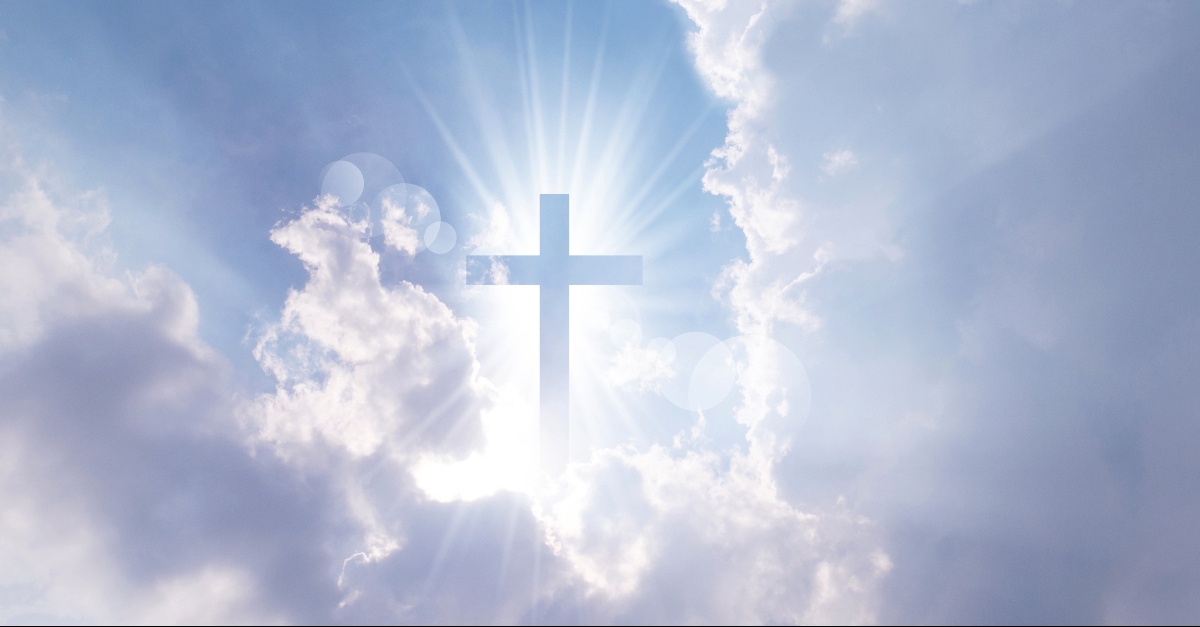In a world constantly seeking meaning and connection, the concept of "holy" resonates deeply, often evoking images of reverence, purity, and divine connection. When we speak of a "holy priest," we are not merely referring to someone who performs religious duties, but rather to an individual whose very being is consecrated, set apart, and dedicated to a higher purpose. This article delves into the profound meaning behind the term "holy," exploring its biblical roots, its significance in spiritual leadership, and the enduring impact of a truly holy priest on faith communities.
Understanding the essence of a holy priest requires us to first grasp the multifaceted nature of "holy" itself. It's a term that transcends simple piety, touching upon the very fabric of divinity and the sacred. From ancient texts to modern spiritual practices, the call to holiness remains a cornerstone of religious life, guiding those who aspire to serve as conduits of divine grace and wisdom.
Table of Contents:
- Understanding the Core: What Does "Holy" Truly Mean?
- The Biblical Foundation of Holiness
- The Role of a Holy Priest in Spiritual Leadership
- The Holy Priest in Orthodox Christian Tradition
- Cultivating Holiness: A Priest's Journey
- The Impact of a Holy Priest on Community and Faith
- Embracing the Divine: The Enduring Legacy of the Holy Priest
Understanding the Core: What Does "Holy" Truly Mean?
The term "holy" carries a weight of meaning that goes far beyond a casual understanding. At its heart, the meaning of holy is exalted or worthy of complete devotion as one perfect in goodness and righteousness. This definition immediately elevates the concept from a mere adjective to a profound descriptor of character and essence. It implies an inherent purity, a moral uprightness, and a connection to something transcendent.
When we ask, "How to use holy in a sentence?", we often find it applied to divine entities, sacred spaces, or consecrated individuals. It's not just about being good; it's about being set apart, consecrated, and imbued with a special quality that reflects the divine. This distinction is crucial for understanding the unique calling of a holy priest.
The Etymology and Broader Significance of Holy
Delving into the etymology of "holy" reveals its deep roots in concepts of wholeness, health, and sacredness. It is intrinsically related to a religion or a god, signifying something that belongs to, is derived from, or is associated with a divine power. This connection to the divine is paramount. Holy refers to the divine, that which has its sanctity directly from God or is connected with Him. This isn't a sanctity earned through human effort alone, but rather one bestowed or recognized as inherent due to its divine association.
Furthermore, something that is sacred, while sometimes used interchangeably with holy, often carries the nuance of being designated for a religious purpose, or regarded with veneration. The holy, however, often implies an intrinsic quality, an inherent sacredness that emanates from its divine source. It's not merely designated; it is.
"Holy" in a Sacred Context: Beyond Mere Piety
In a sacred context, "holy" transcends simple moral goodness or piety. It speaks to a state of being that is entirely devoted and consecrated. It’s about being "set apart" for God's purposes. This concept is vital for anyone aspiring to spiritual leadership, especially a holy priest. It's not enough to be a good person; one must be dedicated, pure in intention, and aligned with divine will. This alignment allows the priest to serve as a true conduit for grace, offering guidance and sacraments that genuinely connect congregants to the divine.
The Biblical Foundation of Holiness
To truly grasp the profound nature of a holy priest, one must turn to the foundational texts that define "holy" within a religious framework. What is the biblical definition of holy? Here is what the Bible gives as a definition of holy: it is a concept deeply interwoven with the very character of God and His relationship with humanity. In the biblical context, holy conveys the idea of being set apart, sacred, or consecrated. It is often associated with purity and the divine nature of God.
This biblical understanding is not merely academic; it forms the very blueprint for how individuals, places, and objects can be considered holy and how a holy priest should embody this sacred quality in their ministry.
Old Testament Insights into God's Holiness
If you think God is concerned with His holiness in the Old Testament, consider the fact that holy is one of the most frequently used descriptors for Him. The Old Testament repeatedly emphasizes God's absolute holiness, portraying Him as utterly distinct from creation, pure, and morally perfect. This divine holiness serves as the standard for all creation, and especially for those who would serve Him. Commands like "Remember the Sabbath day to keep it holy" underscore the expectation that humanity, too, should participate in this sacredness by setting aside time and space for God.
The Old Testament also details elaborate rituals and requirements for priests and places of worship to be considered holy, ensuring that they were fit to approach a holy God. This meticulous attention to holiness in ancient Israel lays the groundwork for understanding the spiritual purity and dedication expected of a holy priest in any era.
The Hebrew Root: "Qadosh" and Being Set Apart
The Hebrew word for holy is qadosh. This term encapsulates the core biblical meaning: to be separate, distinct, or consecrated. It implies a qualitative difference, a transcendence. When something or someone is qadosh, they are removed from the common, the profane, and dedicated exclusively to God. This concept of being "set apart" is fundamental to the identity of a holy priest. They are not merely members of the community; they are chosen, consecrated, and dedicated to serving God and His people in a unique capacity.
This separation isn't about isolation but about dedication. It enables the holy priest to act as an intermediary, bridging the gap between the divine and the human, offering spiritual guidance and administering sacraments with authority derived from their consecrated status.
The Role of a Holy Priest in Spiritual Leadership
The role of a holy priest extends far beyond leading services or performing rituals. A truly holy priest serves as a beacon of spiritual integrity, a guide for their flock, and a living example of faith. Their holiness imbues their ministry with authenticity and power, making their words and actions resonate deeply with congregants. They are entrusted with the sacred duty of interpreting divine will, offering solace, and fostering spiritual growth within their communities.
In this capacity, the holy priest becomes a shepherd, leading their congregation along paths of righteousness. They embody the virtues they preach, striving for personal purity and devotion, which in turn inspires their community to seek a deeper relationship with the divine. Their commitment to holiness allows them to stand as authoritative figures, not through worldly power, but through the spiritual weight of their consecrated lives. This leadership is critical in navigating the complexities of modern life while staying anchored in timeless spiritual truths.
The Holy Priest in Orthodox Christian Tradition
The concept of the holy priest is particularly profound within the Orthodox Christian faith, which places immense emphasis on tradition, sacraments, and the continuity of apostolic succession. Come experience the beauty and stability of the Orthodox faith, where the priesthood is seen as a direct continuation of Christ's ministry on earth. We are a parish of the Orthodox Christian faith which was established on the day of Holy Pentecost in the year 33 AD, signifying a direct, unbroken lineage from the very inception of the Church.
In Orthodoxy, the priest is not merely a minister but an icon of Christ, through whom the mysteries (sacraments) are administered. Their holiness is not just personal virtue but a participation in the holiness of the Church itself, which is the Body of Christ. The vestments, rituals, and liturgical life all reinforce this sacred role, emphasizing that the priest acts in persona Christi – in the person of Christ. This tradition fosters a deep reverence for the holy priest, recognizing their unique position as a conduit of divine grace and a spiritual father to their community. The focus is often on fostering a sense of community and shared faith, as exemplified by a family-friendly diverse parish focused on showing the love of Jesus Christ as experienced in the Orthodox Christian faith.
Cultivating Holiness: A Priest's Journey
Becoming a holy priest is not an overnight transformation but a lifelong journey of spiritual discipline, prayer, and self-sacrifice. It involves continuous introspection, repentance, and a relentless pursuit of God's will. This cultivation of holiness encompasses intellectual study, liturgical practice, and pastoral care, all aimed at conforming one's life more closely to the divine ideal. It requires a profound commitment to personal piety, ethical conduct, and compassionate service.
For a priest, holiness is also cultivated through the very act of ministry. Administering sacraments, offering spiritual counsel, and leading worship services are not just duties but opportunities for deeper communion with God. Through these acts, the holy priest becomes more fully immersed in the sacred, allowing divine grace to transform them from within. This ongoing process of sanctification is what empowers them to effectively lead and inspire their congregations, truly embodying the sacred trust placed upon them.
The Impact of a Holy Priest on Community and Faith
The presence of a holy priest has a transformative impact on the entire community they serve. Their unwavering faith, moral integrity, and compassionate spirit create an environment where spiritual growth can flourish. A holy priest inspires trust and confidence, making congregants feel safe to share their burdens, seek guidance, and deepen their own spiritual journeys. They become a living testament to the power of faith, demonstrating how a life dedicated to God can lead to profound peace and purpose.
Moreover, a holy priest fosters unity and charity within the community. By embodying Christ's love, they encourage parishioners to extend kindness, forgiveness, and support to one another, building a stronger, more vibrant faith community. Their example of selfless service often motivates others to engage in acts of charity and outreach, extending the impact of their holiness beyond the church walls and into the wider world. This ripple effect of holiness is perhaps one of the most significant contributions a holy priest makes to society.
Embracing the Divine: The Enduring Legacy of the Holy Priest
The concept of the holy priest, rooted in ancient traditions and biblical definitions, remains as relevant and vital today as ever. It speaks to a profound human need for spiritual guidance, moral clarity, and connection to the divine. A holy priest is more than just a religious functionary; they are a living embodiment of the sacred, a conduit of grace, and a shepherd guiding their flock towards spiritual enlightenment.
Their legacy is not built on worldly achievements but on the countless lives they touch, the souls they inspire, and the communities they strengthen through their unwavering commitment to holiness. In a rapidly changing world, the steadfast presence of a holy priest offers stability, comfort, and a timeless connection to the eternal truths of faith. They remind us that the pursuit of goodness and righteousness is not just an ideal but a tangible path towards a life truly worthy of devotion.
Conclusion
In essence, the holy priest stands as a testament to the enduring power of faith and the transformative potential of a life consecrated to God. We've explored how "holy" signifies being set apart, pure, and divinely connected, drawing extensively from biblical definitions and its profound meaning in traditions like Orthodox Christianity. The journey of a holy priest is one of continuous spiritual cultivation, leading to a profound impact on their community, fostering faith, unity, and a deeper connection to the divine.
We hope this exploration has deepened your understanding of this vital spiritual role. What does "holy" mean to you? How has the presence of a holy priest impacted your own spiritual journey? Share your thoughts and experiences in the comments below, and consider exploring more articles on our site that delve into the rich tapestry of faith and spirituality. Your engagement helps us build a stronger community of seekers and believers. Thank you for your support!



